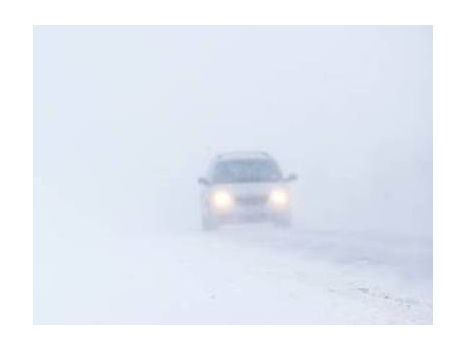Radio’s Message To Congress: AM Radio Is ‘A Lifesaver’ And Needs To Stay In Cars.
- Inside Audio Marketing

- Apr 30, 2024
- 3 min read

The radio industry will make its appeal to House lawmakers Tuesday when a bill that would require carmakers to keep AM radio in the dashboard is the focus of a hearing in the U.S. House of Representatives.
Radio’s case will be made by Melody Spann Cooper, CEO of Midway Broadcasting. According to an advance copy of her testimony obtained by Inside Radio, Cooper’s message to lawmakers will be clear. “The foremost reason that Congress should care about AM radio is that it is a lifesaver,” Cooper says.
That message may resonate more than normal as many House members are returning to Washington after a weekend of devastating tornadoes last weekend, with the need for the public having access to warnings on the Emergency Alert System more poignant than ever.
“AM Radio is important to communities across the country not only because it is a cultural, news and sports oasis that educates the public, but also because it is a resilient lifeline during public safety emergencies,” Cooper says in the prepared text. “No other communications medium has the reach or resiliency of AM radio. A single station can be heard as far as 700 miles away. The signal cuts through buildings and mountains. In remote areas where no cell signal or FM station can be found, AM is there. When the power goes out, radio stations can still be found on battery or crank radios, or in your car.”
Some critics of an AM in-car requirement have suggested that text message-based warnings are up to speed and can replace what radio does. But Cooper points out that mobile service is not as reliable as it seems, pointing out a recent outage that left tens of thousands of mobile users without service for hours. She will also remind Congress that the mobile system is more vulnerable to cyberattacks than radio, where thousands of stations operate independently of one another.
“When the power goes out and cell towers go down, Americans can depend on radio to provide them the emergency information they need,” Cooper says. She also notes that 77 radio stations across the country — a vast majority of them AM — are FEMA-designated primary stations for emergencies.
Beyond just the emergency warning role that AM plays, Cooper will also tell the House subcommittee that AM radio plays an especially significant role for Black and Hispanic communities. That’s especially true for those living away from the big cities.
Radio As Safety Equipment
The hearing comes as congressional support for the AM Radio for Every Vehicle Act (H.R. 4313) continues to build. The bill last month secured a majority of House members saying they back the effort, drawing on the support from lawmakers in both political parties. To date, 247 members of the House on both sides of the aisle have come out in favor of the proposal. No votes have been taken in the chamber, however.
If passed, the bill would require the Department of Transportation to issue a rule that requires all new motor vehicles to have devices that can access, receive signals, and play content transmitted by AM broadcast stations or digital audio AM broadcast stations installed as standard equipment. If they don’t, carmakers could be fined. And prior to the effective date of the rule, manufacturers that do not include AM would be required to put a warning label on vehicles. The Government Accountability Office would also be required to study and report on whether a reliable alternative communication system exists for delivering emergency alerts.
Several critics of the bill have said that while they support AM radio in dashboards, they are hesitant to require automakers to keep it there. But Cooper’s message for them is that the federal government has a long history of advancing public safety in the automobile, from seatbelts to airbags to back-up cameras. “Congress should do the same here, ensuring Americans’ continued access to emergency information through their car radios as a safety feature,” she says.
Seeking 60 In Senate
The bill has also gathered 49 backers in the Senate, where the Senate Commerce Committee last year voted to send the legislation (S. 1669) to the floor for a vote. But Washington insiders say Senate Majority Leader Chuck Schumer (D-NY) is unlikely to bring the bill up for a vote until that number hits 60.
The bill currently has 48 backers, but NAB President Curtis LeGeyt told reporters at the NAB Show this month he believes there are 60 Senators onboard. “We certainly have tremendous support in the Senate, and I think that’s going to be reflected by what you see in terms of co-sponsors,” LeGeyt said.




Comments